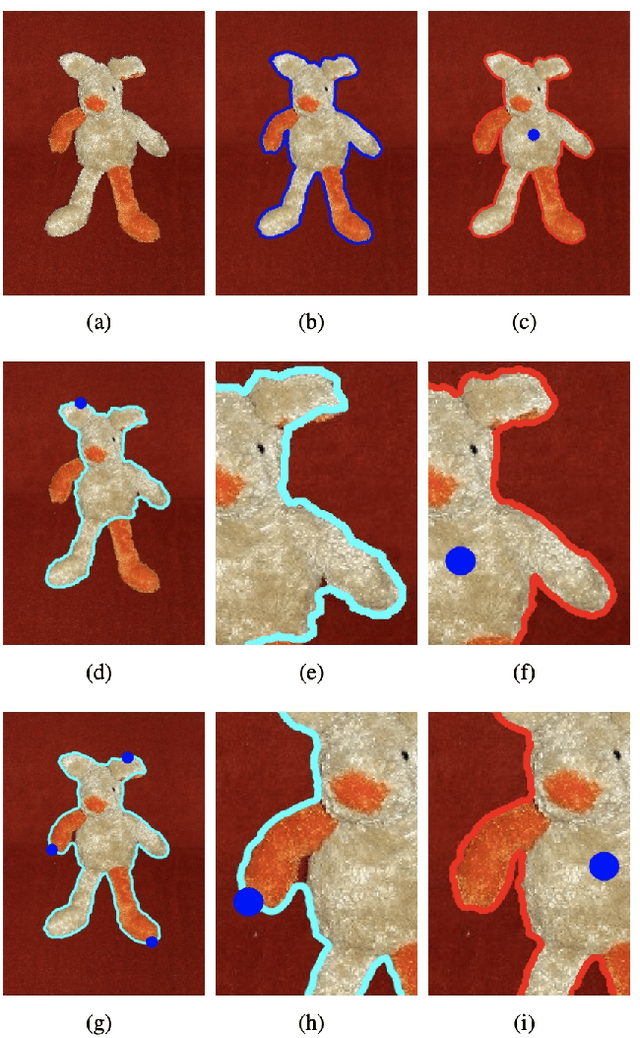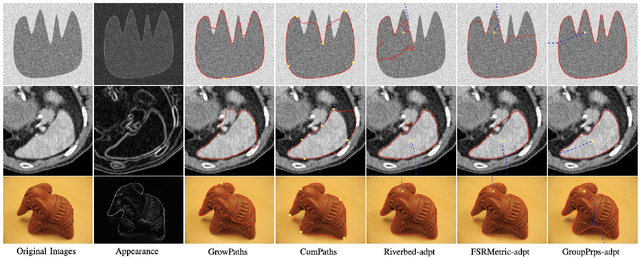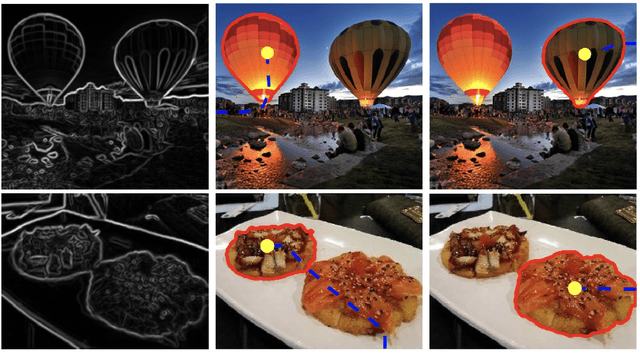Grouping Boundary Proposals for Fast Interactive Image Segmentation
Paper and Code
Sep 08, 2023



Geodesic models are known as an efficient tool for solving various image segmentation problems. Most of existing approaches only exploit local pointwise image features to track geodesic paths for delineating the objective boundaries. However, such a segmentation strategy cannot take into account the connectivity of the image edge features, increasing the risk of shortcut problem, especially in the case of complicated scenario. In this work, we introduce a new image segmentation model based on the minimal geodesic framework in conjunction with an adaptive cut-based circular optimal path computation scheme and a graph-based boundary proposals grouping scheme. Specifically, the adaptive cut can disconnect the image domain such that the target contours are imposed to pass through this cut only once. The boundary proposals are comprised of precomputed image edge segments, providing the connectivity information for our segmentation model. These boundary proposals are then incorporated into the proposed image segmentation model, such that the target segmentation contours are made up of a set of selected boundary proposals and the corresponding geodesic paths linking them. Experimental results show that the proposed model indeed outperforms state-of-the-art minimal paths-based image segmentation approaches.
 Add to Chrome
Add to Chrome Add to Firefox
Add to Firefox Add to Edge
Add to Edge